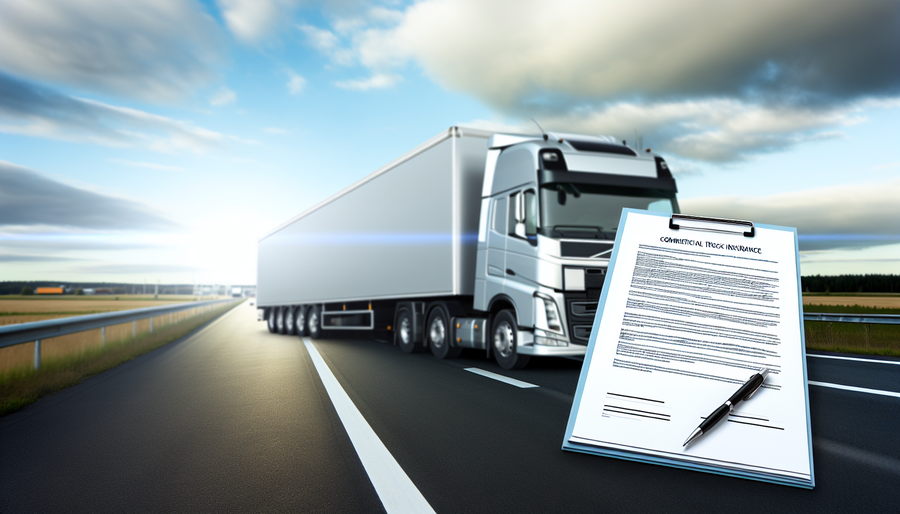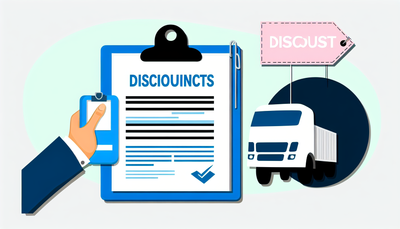Commercial Truck Insurance: What You Need to Know

Introduction
If you own or operate a commercial truck, having the right insurance coverage isn't just a legal requirement—it’s essential for protecting your business. Whether you're an independent owner-operator or managing a fleet, understanding commercial truck insurance can save you from financial risks and operational setbacks. In this guide, we’ll break down everything you need to know about commercial truck insurance, including coverage types, costs, and key factors to consider when choosing a policy.
Why Commercial Truck Insurance is Important
Commercial truck insurance provides financial protection against accidents, liability claims, theft, and damage to your vehicle. Without proper coverage, a single accident could lead to significant out-of-pocket expenses, legal troubles, and even business closure. Here’s why having commercial truck insurance is crucial:
- Legal Compliance: Most states require commercial truck operators to carry minimum coverage to legally operate.
- Financial Protection: Covers repair costs, medical bills, and potential lawsuits.
- Business Continuity: Helps you stay operational after an accident or unexpected event.
Types of Commercial Truck Insurance Coverage
Understanding the different types of coverage available can help you choose the best policy for your needs:
1. Primary Liability Insurance
- Covers damages or injuries caused by your truck in an accident.
- Required by law for all commercial truck drivers.
2. Physical Damage Coverage
- Pays for repairs or replacement if your truck is damaged in an accident, theft, or natural disaster.
- Includes collision and comprehensive coverage.
3. Motor Truck Cargo Insurance
- Protects the goods you’re hauling in case of theft, loss, or damage.
- Essential for freight carriers and logistics companies.
4. Non-Trucking Liability Insurance
- Covers your truck when it’s being used for non-business purposes.
- Ideal for owner-operators leasing their truck to a motor carrier.
5. Bobtail Insurance
- Provides liability coverage when operating the truck without a trailer.
- Useful for independent truckers in between loads.
Factors That Affect Commercial Truck Insurance Rates
The cost of commercial truck insurance varies based on several factors:
- Driving Record: Clean records result in lower premiums.
- Truck Type & Value: Newer and specialized trucks may have higher insurance costs.
- Freight Type: Hauling hazardous materials or high-value goods increases risk.
- Mileage & Routes: Long-haul trucking tends to have higher premiums than local routes.
- Coverage Limits & Deductibles: Higher coverage limits lead to higher premiums.
Tips for Lowering Your Insurance Costs
While commercial truck insurance can be costly, there are ways to reduce your premiums:
- Maintain a Clean Driving Record: Avoid traffic violations and accidents.
- Invest in Safety Measures: Install GPS tracking, dash cams, and anti-theft devices.
- Bundle Policies: Combine multiple insurance policies for discounts.
- Compare Quotes: Shop around to find the best rates.
- Increase Deductibles: Opting for a higher deductible can lower monthly premiums.
Conclusion
Commercial truck insurance is an essential investment for trucking businesses and owner-operators. By understanding the different types of coverage, factors impacting costs, and strategies for reducing premiums, you can make informed decisions that protect your business and livelihood. Take the time to compare policies and choose coverage that meets your specific needs so you can drive with confidence.
For more insights on truck insurance and fleet management, stay tuned to our blog!







